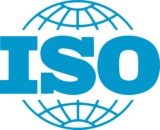You are currently viewing a placeholder content from Default. To access the actual content, click the button below. Please note that doing so will share data with third-party providers.
More InformationFor the past few years, Prof. Roman Beck has been instrumental in developing a governance standard for blockchain and DLT-systems, in close collaboration with Astrid Bækby Knudsen from Danish Standard, an organisation specialised in facilitating standardisation for the business community in Denmark.
The standard will ensure greater transparency, interoperability, and accountability in the use of blockchain and DLT-systems. The need for transparency and accountability is of the utmost importance. Blockchain and so-called distributed ledger technology (DLT) have long held the potential to revolutionise the way businesses and organisations in general conduct exchanges – be it physical goods, intellectual property, or financial transactions – because of the technologies’ inherent transparency. However, there has long been a need for international standardisation to create a reliable framework for any exchange.
Just released, the first ever governance standard for blockchain and DLT, which has been accepted and published by the International Organization for Standardization, provides guidance for organizations, industries, and governments on how governance can be implemented and executed in distributed ledger systems and addresses how key governance characteristics such as decision rights, accountabilities, and incentives operate effectively and efficiently in DLT systems.
“Blockchain technology holds massive opportunities for businesses, especially in a highly digitalized country like Denmark. By spearheading the effort to create a governance standard for blockchain, which has been adopted internationally, we have ensured that the interests of Danish businesses are represented”
Roman Beck
One key aspect of the governance standard is the concept of Smart Contracts. Many present-day DLT systems rely on a degree of centralised, often informal, decision-making. Smart contracts can allow for decentralised governance mechanisms. Ideally, in the future DLT systems will ensure accountability by technical implementation rather than institutional implementation through traditional contracts.
The standard may help generate a higher level of trust in the market and the technology supporting it. By operating in accordance with an international standard, businesses and governmental institutions are able to document to customers and users that they follow a set of best practices.
“The standard will ensure trust and accountability in blockchain applications especially with regard to security and privacy issues. It will also enable companies to document the fact that they follow a set of best practices in their work”
Astrid Bækby Knudsen, consultant at Dansk Standard
The new ISO standard on Blockchain Governance (ISO/TS 23635:2022) have been developed in the ISO Governance Working Group under the lead of Roman Beck in close collaboration with Astrid Bækby Knudsen from Dansk Standard.




